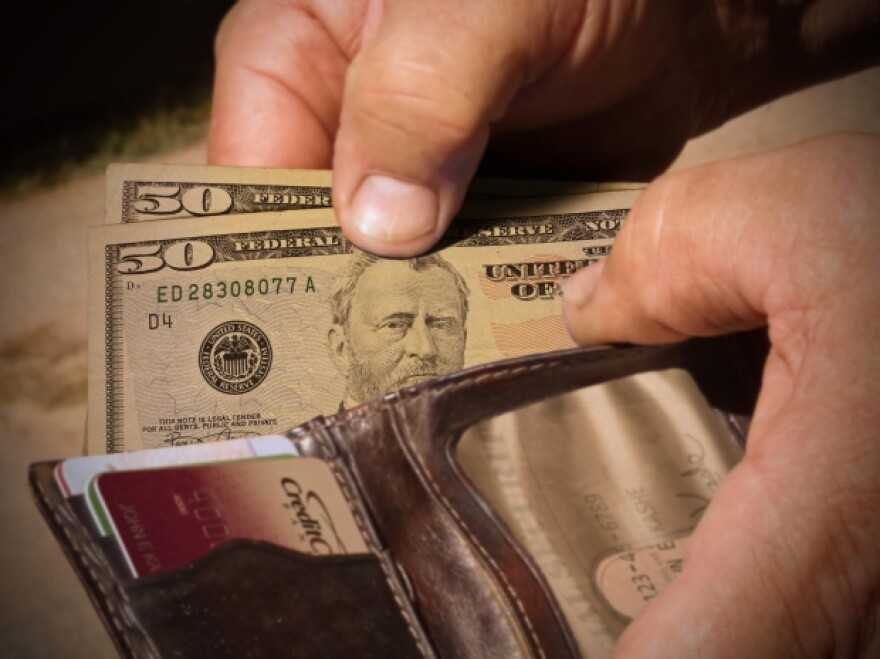The $1.9 trillion American Rescue Plan passed through Congress along party lines and signed into law by President Joe Biden last week is welcome assistance for many in Peoria-area local government.
In addition to $1,400 stimulus payments for many Americans and boosted unemployment benefits, the bill includes $7.5 billion for The Centers of Disease Control and Prevention to combat the coronavirus.
The bill also includes $140 million in relief funding for Peoria, Tazewell, and Woodford counties. For the City of Peoria, the one-time relief funds are welcome to blunt the blow of a painful budget readjustment cycle sparked by reduced revenues as the COVID-19 pandemic set in last spring.
"The city was planning on borrowing $10 million in 2021 in order to balance the budget," said Peoria City Manager Patrick Urich. "So this will allow us to avoid having to borrow, and then the cost of repaying that back over 20 years is avoided."
Urich plans to recommend using some of the $46 million the city is set to receive for avoiding that costly borrowing. He also will recommend ending the practice of intermittent furloughs of non-union employees through the end of this year as a cost-saving move.
Other items, like potentially restoring fire engine service cut during the last round of protracted budget reductions, would be up for city council discussion, likely in May.
"It's a needed shot in the arm for all of us, and hopefully we'll be able to have a good discussion," Urich said.
Tazewell County Board Chairman David Zimmerman said there are a lot of possibilities for its slice of the aid.
Zimmerman said "$25.7 million is a lot, or it might be too little. But I think we're just really going to explore what we can do to get the most bang for our buck on this."
Half the relief money is to arrive to local government coffers within 60 days of the bill's passage, with the second installment expected within 12 months. Part of those dollars are earmarked for infrastructure projects like water, sewer -- or in this case -- beefing up reliable nnternet access, particularly for rural areas. Zimmerman said he's talked with Sheriff Jeff Lower about using a portion of the funding to erect more cell phone towers.
"That would give more homes line of sight, or 5G access, for some of these dead zones," said Zimmerman.
The federal relief bill also includes $128 billion in grants for local education agencies across the country.
Peoria County Regional Superintendent of Schools Beth Crider said the relief funding will not only help alleviate some expenses brought on by the pandemic, but also help safely keep kids in the school building.
"The priority has been to get kids back in school," Crider said. "And if you want kids in the school building face-to-face with their teachers, you have to be able to have the support and PPE (personal protective equipment) to make sure that can be done safely."
Crider said she is working hard to access the funding for local school districts as soon as possible.
The American Relief Plan also appropriates nearly $30 billion for transit systems. CityLink General Manager Doug Roelfs said the funding provides a sense of security -- and takes away a lot of uncertainty.
"It takes away a lot of questions in the future, so we can keep providing service. We won't have to reduce any routes and hours in the foreseeable future," Roelfs said.
Airports, Amtrak, and aerospace manufacturing also are receiving transit relief funds in the package.
Peoria's local congressional delegation broke along party lines in the vote for the latest COVID-19 relief package.
U.S. Rep. Darin LaHood, R-Peoria, opposed the bill. In a speech on the House floor shortly before the final vote, LaHood claimed Democrats abandoned a bipartisan approach to push their own policy priorities.
"Instead of rewarding fiscally irresponsible states with huge bailouts, Congress should work together to incentivize growth, focus on job creation, and vaccine distrubtion," LaHood said. "To generate a strong economy, we need to get government out of the way, open our communities, and enable Americans to thrive."
LaHood said unspent state and local government funding remains available from previously-passed relief packages, and Congress should target aid more narrowly.
But U.S. Rep. Cheri Bustos, D-Moline, supported the bill that she said will help thousands of small businesses, and the 113,000 kids who still haven't returned to class throughout the 17th Congressional District.
"No family in our region, in our state, throughout our nation, has been left untouched. Our sense of urgency could not be stronger," Bustos said in a floor speech.
But though the federal stimulus package will assist state and local governments through the short term with additional funding, Fitch Ratings said it doesn't expect the aid to resolve longer-term fiscal stressors, such as ballooning unfunded pension liabilities. The most immediate positive benefit for state and local credit ratings will be in resolving short-term deficits with the relief money, Fitch said.
We’re living in unprecedented times when information changes by the minute. WCBU will continue to be here for you, keeping you up-to-date with the live, local and trusted news you need. Help ensure WCBU can continue with its in-depth and comprehensive COVID-19 coverage as the situation evolves by making a contribution.
Copyright 2021 WCBU. To see more, visit WCBU. 9(MDIwMjIxMDA0MDE0Mzk4NDIzNjA0OGQ5Yg001))


